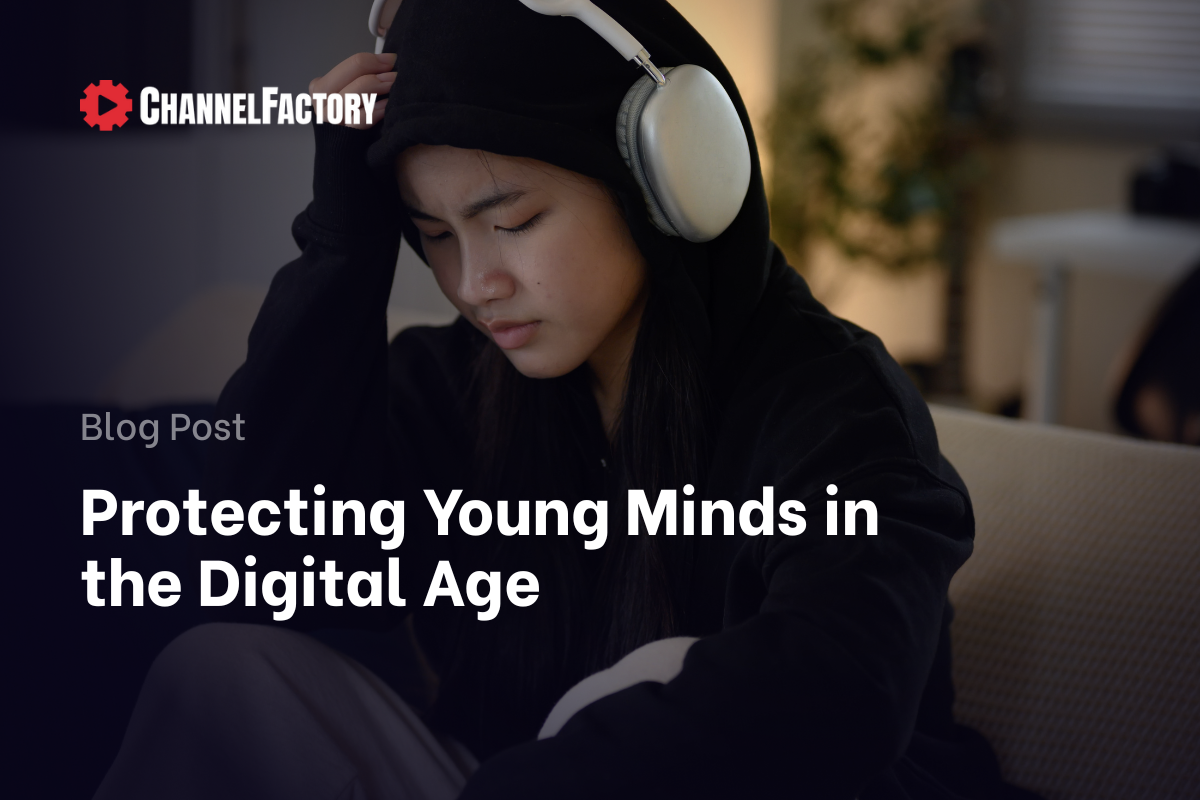November 14, 2025

By Phil Cowdell, Global Chief Strategy Officer
Young people are spending more time online than any generation before them. Scroll by scroll, platform by platform, digital spaces have become the backdrop to how they learn, connect, create, and grow.
But the system is not keeping pace with their needs. Half of consumers in our latest research believe social platforms negatively impact youth mental wellbeing, signalling a clear gap between how young people use the internet and how well it protects them.
As Anti-Bullying Week shines a spotlight on how online interactions shape young lives, it is worth acknowledging a simple truth. Advertisers are not bystanders. The environments that brands fund help shape the experiences young people have every day. We have a responsibility to make those environments healthier.
Regulation is evolving, platforms are making changes, and public awareness is growing. But none of that replaces the influence advertisers hold. Media investment determines which creators get amplified, which content thrives, and which spaces young people spend the most time in.
At Channel Factory, we have long argued that responsibility and performance are not opposing forces. They reinforce each other. When brands appear in positive, supportive environments, trust increases, attention improves, and outcomes follow.
Our Conscious Advertising Programme was built on that belief. We use contextual intelligence to champion diverse creators, challenge outdated blocklists, and help brands invest in content that reflects their values.
Now, we are expanding that work to support one of the most important issues of all: youth mental health.
The Youth Mental Health Initiative is designed to help advertisers play an active role in creating safer, healthier digital spaces. It is built around three connected pillars:
We are collaborating with academics, clinicians, and youth mental health specialists to drive new thinking and innovation around online wellbeing. This includes the development of Suicide “Safe Online Standards” (SoS) — a framework that defines how advertisers and platforms can better protect vulnerable users and establish safer digital norms.
We are partnering with clinicians, nonprofits, advocates, and academics to raise the visibility of educational and empowering content that promotes awareness and resilience. Projects such as our Mental Health Profiles and Archive highlight creators, educators, and organisations leading digital-wellbeing conversations and modelling positive behaviours online.
Healthy digital spaces do not happen by accident. They are built through intentional curation, expert input, and conscious investment. Our Positive Mental Health Inclusion Lists identify content environments that actively support resilience, confidence, and wellbeing. They spotlight creators who uplift, educators who inform, and communities built around empathy and openness.
Each list is grounded in evidence-based practice and validated by mental health experts. It builds on Channel Factory’s contextual-intelligence framework with a sharper purpose: to help advertisers fund content that does good and performs.
Dr Dan Reidenberg, one of our collaborators, captures the value of this approach:
“Advertisers work from a place of communication, building a brand and reputation. Mental health experts work from a place of understanding symptoms, diagnostic categories, prevention and intervention treatment, support and empathetic understanding. When these worlds collaborate, there will be greater understanding, more significant connections, and better outcomes.”
This initiative combines both perspectives to create a practical way for brands to support young audiences at scale.
The digital environments young people spend time in today shape their long-term wellbeing. And the media ecosystem advertisers fund shapes those environments. Supporting positive content is not only the right thing to do. It is a strategic choice. Here is why:
Responsible media is not a trade-off. It is a competitive advantage.
A healthier internet starts with a handful of practical decisions:
Our team can help build tailored approaches for brands looking to evolve their responsible media strategies.
Young people will only become more digitally immersed in the years ahead. The question is whether those environments will lift them up or hold them back.
Advertisers, agencies, platforms and technology partners all have a role to play. Our collective choices shape the online spaces young people grow up in, and the future they step into.
As Dr Reidenberg reminds us: “I find hope in the youth, parents, and experts who care about exposure to harmful content and platforms. In these ways technology companies are working to address the complex nature of digital well-being and safety. And in the good intentions that many have around the world who are trying to design, develop, integrate and support youth who are living in a time of unprecedented change due to the technological advances that are happening at speeds never before imagined.”
Channel Factory is committed to helping build those healthier spaces. And we invite advertisers to join us. Protecting young minds is both a responsibility and an opportunity to shape a better digital world.